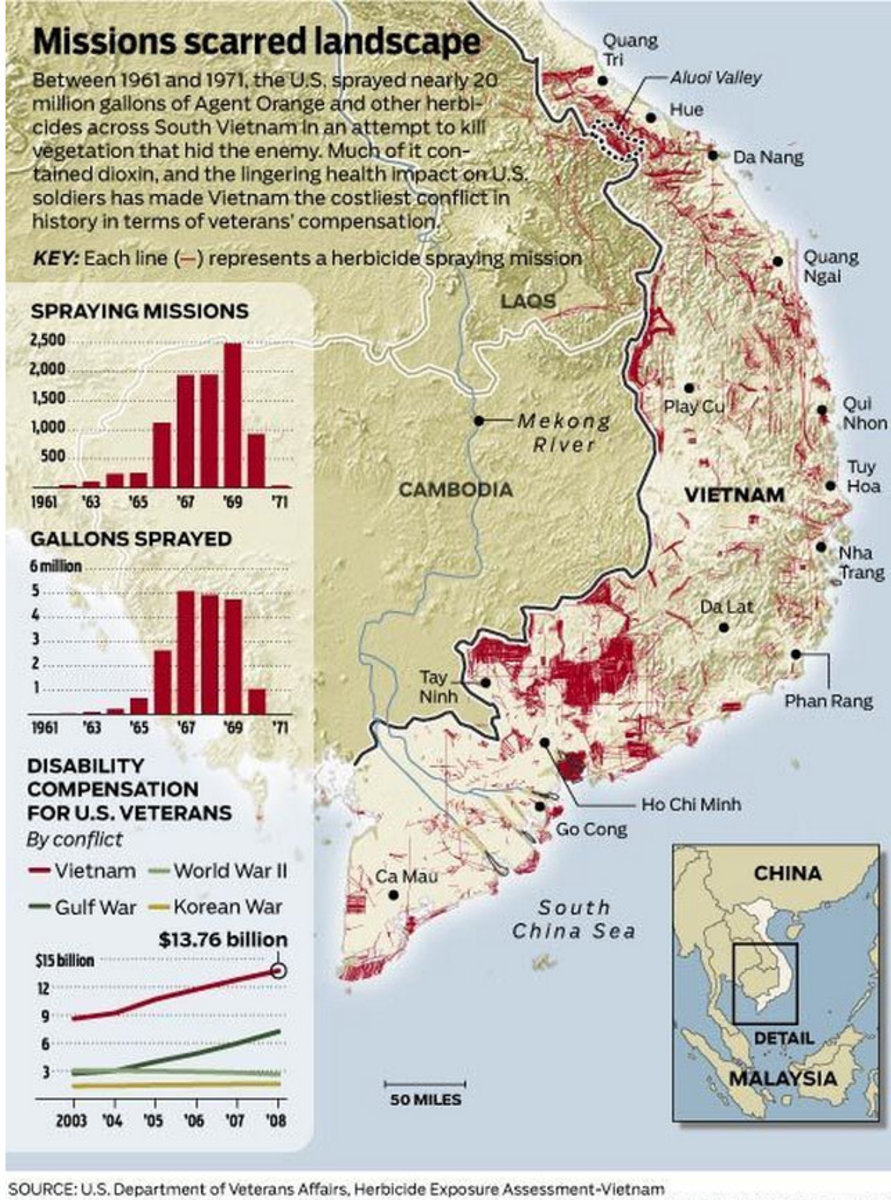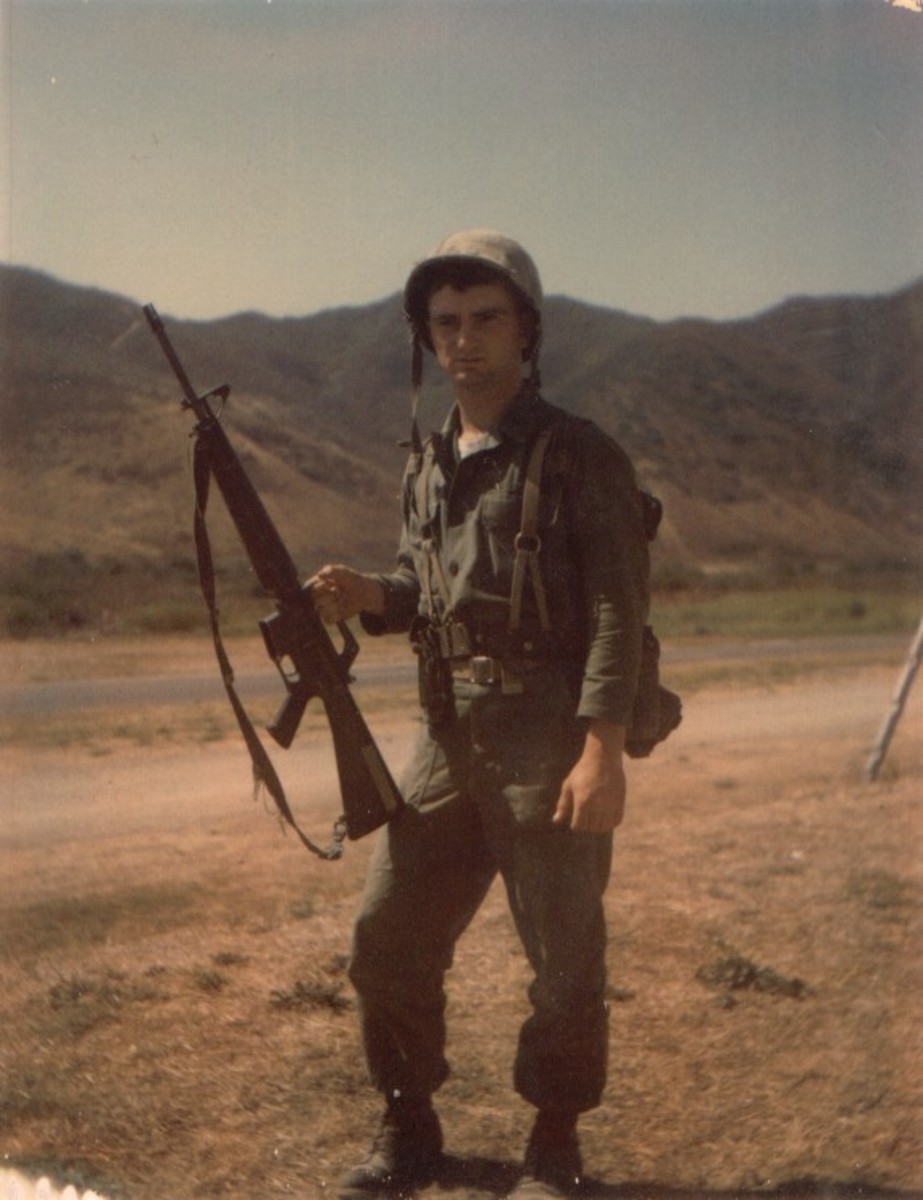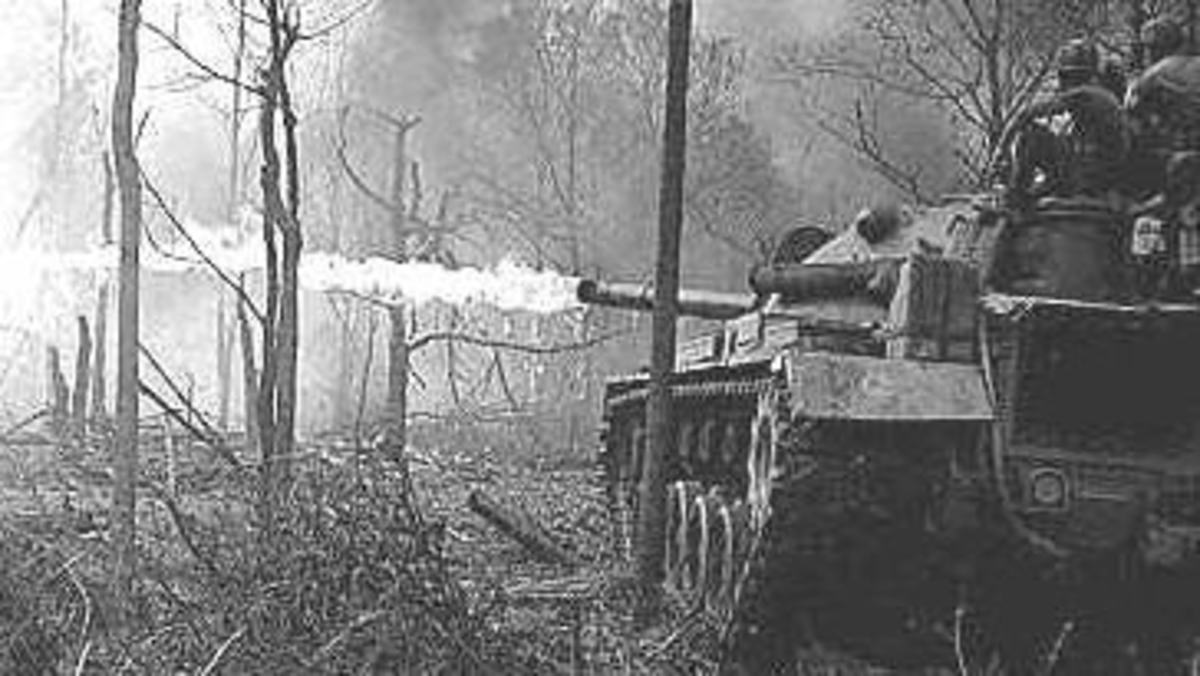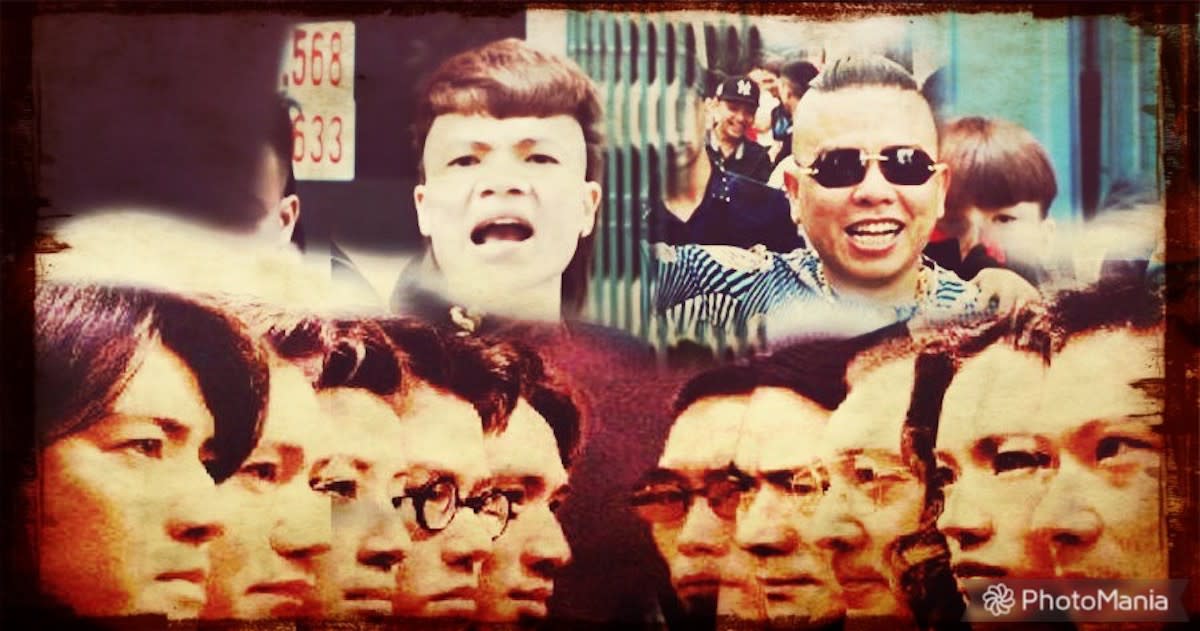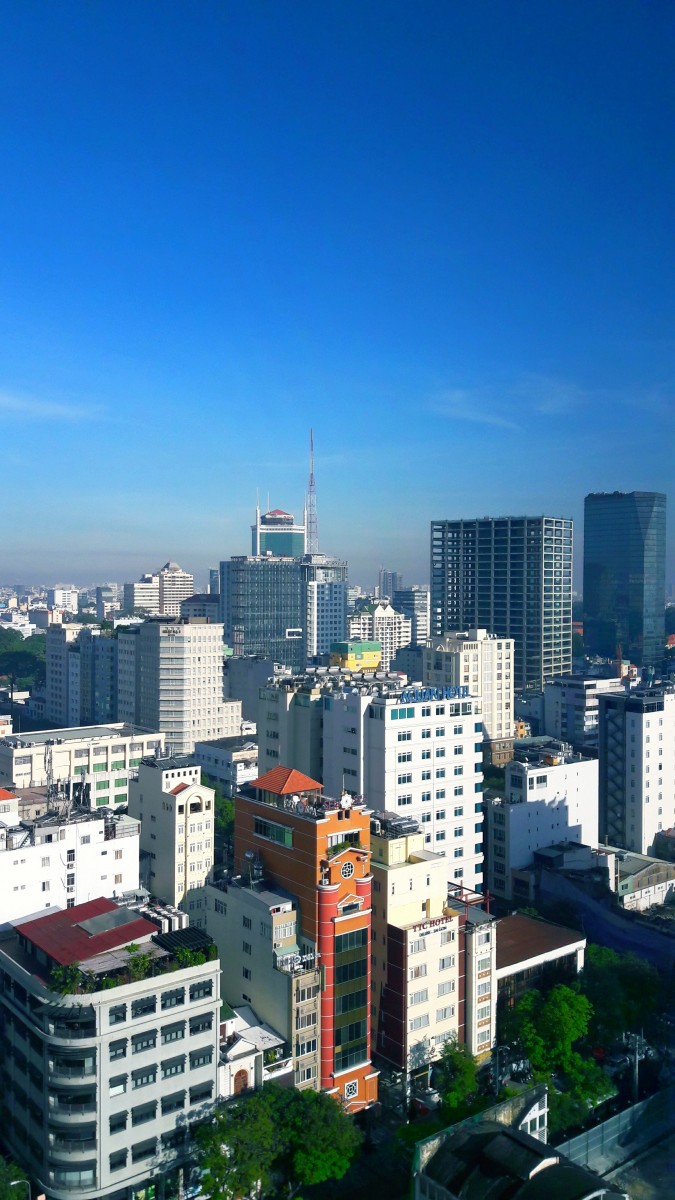Leaving Vietnam

2012 is the 39th “anniversary” of the last troops leaving Vietnam and 37 years since our ignominious “retreat” from Saigon. So I thought I’d dust-off and update an article I wrote for the Dayton (Ohio) Daily News back in 2000. They asked for remembrances of Vietnam vets so I sent them this. The editor was enthusiastic and assured me it would be published. Of course, it wasn’t. When I asked why, I was told they “ran out of room.” Right. I guess they didn’t like what I said.
I was a member of the U.S. Army and stationed in the Republic of Vietnam from October 1966 to September 1967. Upon my arrival, I was assigned to the 519th Military Intelligence (MI) Battalion, part of the 525th MI Brigade outside Saigon, where my job was to keep track of Viet Cong initiated incidents (which were quite frequent). Some two or three weeks in-country, a VC tossed a grenade into a group of people, including women and children, and some of the casualties happened to be brought to our compound. The horrible results demonstrated just how ruthless our enemy was and what lengths he would resort to in order to achieve his ends. I had always supported the war, but actually being there and witnessing the carnage first hand reinforced my belief that our cause was just, a belief I still hold.
For me personally, the year was uneventful. Thankfully, my job did not require my being exposed to combat, although I ducked a few stray rounds now and again. About six months into my tour, I was reassigned to the intelligence shop (G-2) of what would become the Americal Division in Chu Lai which was further north, not far from Da Nang. The worst thing we had to worry about was an occasional mortar round or Soviet-made rocket. What bothered me most during my year there was the news from back home. As someone born right after World War II and brought up in the 1950s, I was used to an America in which people were patriotic and supportive of US military efforts. The reaction to the Vietnam War on our campuses and city streets was unbelievable to me. I was particularly incensed by a picture of some “hippie” climbing the U.S. Marine Corps Iwo Jima Memorial in Arlington, Virginia and “crowning” it with a Viet Cong flag. If I had been there, I would have been in trouble because I know I would have hit him. (I can only imagine how the Marines must have felt.)
I served two more years in the Army while the war raged on. The Tet Offensive happened in 1968 some six months after I left Vietnam, and the effort left the Viet Cong finished as an effective fighting force. You would not know it if you listened to the American media where it was reported almost as an enemy victory and as “proof” that American efforts were failing. I got out in 1969 and returned to my hometown of Providence, Rhode Island where I enrolled in Rhode Island College. During this time, President Nixon bombed Cambodia, precipitating all sorts of demonstrations including the unfortunate occurrences at Kent State. Much of time on campus was spent arguing with young anti-war types who did not have a clue what it was like to be in the military, much less carry an M-16 through triple-canopy jungle trying to find an invisible enemy and kill him before he kills you.
By 1975, I was married, working for the government, and living just outside of Washington, DC. I still remember the frustration I felt as the North Vietnamese, buoyed by the confusion reigning in Washington at the time because of the Watergate scandal, abrogated the treaty signed at the Paris peace talks and marched to Saigon. It only took a few weeks; the South Vietnamese defenses collapsed quickly and it soon became apparent Saigon’s days were numbered. Some Vietnam veterans tried organizing a private army to intervene and I remember considering joining them but it was just wishful thinking. President Ford tried a last-ditch attempt to send them aid but the Congress stopped him and that was the end of that. The result, of course, was the debacle on 30 April 1975, the shameful exit of the last Americans from the rooftop of the embassy and the abandonment of our allies to the forces of darkness as they closed in.
By coincidence, the day I was writing this article, there was an article in the Dayton Daily News about General Vo Nguyen Giap, the mastermind of the “Vietnamese struggle against imperialism.” He is obviously still a committed Communist. (He’s still alive, by the way.) I hope he’s satisfied. His government presides over a third-world backwater, economically stifled by a commitment to a system that history has proven to be wrong. Their former Soviet benefactors are no more while China has become almost an enemy (not surprising – Vietnam and China have been rivals for centuries). Even a casual comparison of nations that fell under the influence of the West after World War II with those that were sucked behind the Iron Curtain demonstrates the superiority of the market economy to socialism, especially the totalitarian variety. The proof lies in the fact that Vietnam is one of a handful of Communist countries hanging on to their outmoded system while, simultaneously, “experimenting” with market reforms. They see the handwriting on the wall. (As a matter of fact, present day Vietnam is replete with resort hotels and tourism is increasing. Some former GIs are even going there to see they fought - and where many of their friends died.)
We tried in Southeast Asia to stem the tide of Communist Revolution and, at least, we delayed it for a decade (who knows, without our intervention the much-maligned “domino-theory” of one nation falling to the “Reds” after another might have proven to be accurate). In any case, our execution of the war was deeply flawed, characterized by fighting with one hand tied behind our backs and allowing the enemy to melt away into sanctuaries where we were forbidden to follow. All of this, the “boat people,” the reeducation camps, the invasion of Cambodia, the invasion by China, and most importantly the subjugation of the people of what used to be South Vietnam could have been avoided, but we gave up. It is my contention that had we promulgated the war the way we did in Desert Storm with massive firepower and with a clear goal in mind, we would have had a quick victory and the American people would not have grown tired of the war and the constant declarations of “light at the end of the tunnel.”
The worst part of all this to my mind is the fact that so many Americans not only opposed the war, but gave aid and comfort to the enemy. The images of these scoundrels are forever burned in my memory. They disgusted me then. They disgust me still.
Update
Vo Nguyen Giap died in October 2013, age 102. Good general, committed Communist. RIP
The Flag of a Nation that No Longer Exists
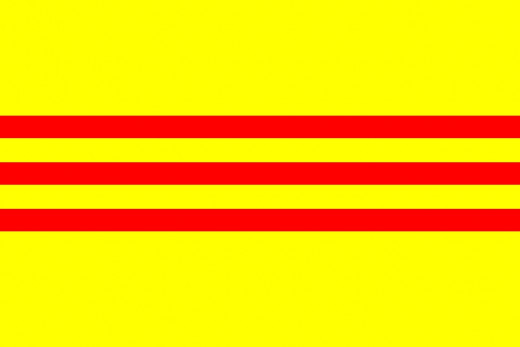

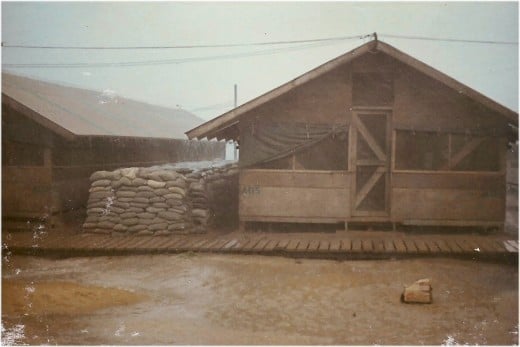
Find out more about me at my website:
- http://www.alexdrinkwater.com
This is the website of Alex Drinkwater, Jr., author of fiction. including the novels "The Ghosts of Hanoi," and "Duly Constituted Authority."

